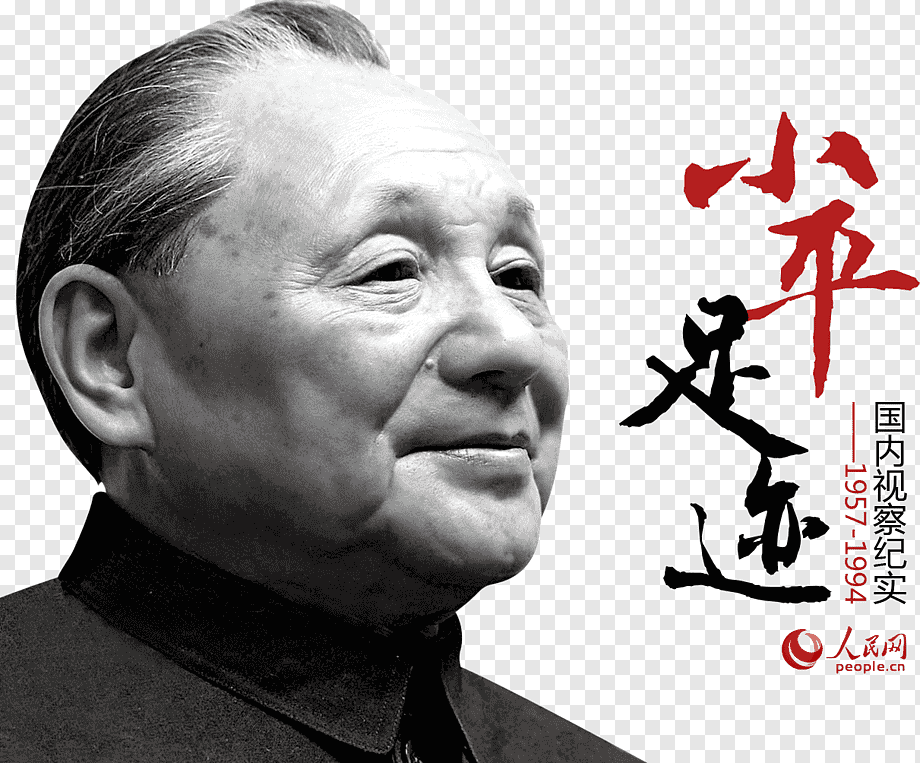Don’t know why he wastes time criticizing him since JT doesn’t do anything wrong. Also really funny that him and other commenters are complaining about The Deprogram being like Chapo.
Upon deeper research, it turns out Day used to post on the subreddit to dunk on BadEmpanada, which is funny since Day himself has strong BadEmpanada vibes.
This is such nonsense. These two probably agree on 99% of issues. Capitalism is killing the world as we speak and some bozo calls out another bozo over his favorite flavor of leftism. Who gives a shit if MMT is an “alternative to marxism” or whatever when we’re lightyears away from either?
This guy comes off as a prick
Critiquing =/= attacking. Marxists can and should critique each other.
This reads far more like an attack than a critique though.
I like JT generally but I agree with Roderic here. In context, that video is just responding directly to the bullshit debt ceiling, but it’s limitations are built into the framework of trying to speak how capitalism fans understand. MMT is not just a small step or so but a major distraction in many ways.
Class power is hidden by MMT in both idea and in action. It’s usefulness will always be limited to a way which is less beneficial to the working class than to capitalists because it undermines/restructures nothing.
My point here is not that it’s ontologically wrong or so but that it’s a harmful distraction from better paths forward to win. I think there are some concessions which are worth fighting for, and these are all directly fought for. MMT is something one can argue for to reach those concessions, and possibly get some of them, but leads to only misunderstandings among the working class for HOW those concessions are won. Edit: my point about distractions is that not all concessions are distractions, only the concessions which aren’t directly related to any material gain. MMT is a method of getting concessions which I find entirely tangential to any real power
The bourgeoisie won’t give concessions, MMT or not, without the other much more important things to discuss and push for, like class struggle
I guess from my point of view, it’s about boosting confidence in the world that lies on the other side of the revolution. As Marx predicted and the USSR and PRC showed, you can’t just completely rearrange society at the snap of a finger, you need some practical economic program to keep everything running until the transition to full communism can be worked out.
Capitalist theory is that money is a mysterious unknowable etheric substance that dances at the whim of the invisible hand, whereas MMT shows that money is simply an organizing tool that a government can consciously control and use to shape and grow the economy intentionally, and actually has been since its invention. And that ultimately, the only ‘real’ things in an economy are workers, tools and resources.
But, I can see why it would be considered a distraction from outright class struggle if it’s presented as a technocratic solution to capitalism’s problems, but then again it’s incompatible with finance capitalism which needs money to be a scarce resource to squeeze arbitrage from. So even implementing MMT under present capitalism would require such a radical change in economic structure, like the complete abolishment of all private lending institutions, that (to someone with political awareness) it’s obviously impossible in the face of financial capital’s political power to just ‘vote it in’. Anyone still believing in bourgeoise democracy has bigger brainworms to fry, and whichever technocratic solution they happen to cling to is just a matter of aesthetics. Conversely, someone who sees the total futility of electoral politics, even the necessity of revolution, may be disheartened by a lack of a solid theory on how the world afterwards could be constructed from the materials actually available today.
China makes use of MMT ideas, and has full state control of all its banks. Also, one user on here was looking into similarities between MMT and the economic system that Stalin set up during and after WW2 - which was later dismantled by Krushchev to disastrous results - but I never saw the results of their research. It’s also similar to how Marx saw capitalism tending to socialism*, through the industrialisation of finance (bank managers becoming industrial engineers), rather than what actually happened in the imperial core, the financialisation of industry (industrial engineers focusing entirely on profit for the next quarter). So, one could reasonably present it as a proletarian economic theory [of the transition phase to communism], in contrast to the provably inferior neoliberalism - which developed inevitably from imperialism, which developed inevitably from monopoly capitalism, which developed inevitably from the “pure and noble” competitive industrial capitalism that bourgeoise apologists always refer back to.
(*or gaining features of socialism that it nevertheless could not use to their full extent, such as nationalized infrastructure and the welfare state)
I fully understand the concern that talking about MMT might create a negative pressure against class consciousness, but I personally think the positive pressure from a greater understanding of economic systems outweighs that. At least, it’s something that a revolutionary organisation should take firmly in hand, putting it in its proper place as a useful tool subsumed under the banner of class war. I don’t think it should be discarded, and I think that would be more of a problem than talking about it too much, even vulgarly in the context of current capitalist crises.
I like this response, though I still think that what you said hasn’t fully contradicted my point and we are in fact not to the root of the problem if you support MMT right now. We must take the time aspect into account for sure (it’s not pressing now but may be later?). What does MMT do except for describe the way the bourgeoisie already use the American economy? MMTers support the idea that this should be expanded and used for proletarians, and that’s noble. But it ignores that MMT on a global scale does not hold up unless the currency is trusted/insured and there is an external economy against which the currency can be weighed. That requires a big military usually. Even 2 proletarian countries can’t allow the other to utilize MMT to somehow gain more in trade against the other.
Begin here: what use in do MMT methods have in a closed system economy? Money can be printed to provide the ability to have more purchasing power to a select group relative to the rest. That’s useful, though won’t happen without the power of the state. Which means it’s currently only useful to capitalists. It’s why MMT can be used to radicalize (make people understand how it’s already used for bourgeois interests) but I find it less effective than Marxism and Philosophically in poverty.
Now make the system not closed but open to trade with another country. MMT methods can be used to allow the printing and inflation to follow specific time lengths and patterns to allow the extra importation of goods from one country to the other. The losing country will lose trust in the currency though. Either you force that country to continue or start playing nice again and not using monetary theories offensively.
My point here being: the only reason MMT is useful is it allows redistribution by a ruling class (which we hope to be proletarian), but with money and without the need to directly take the goods from those which we want to have less. I guess it’s fine, but it’s just hiding the root of the process behind a curtain still. I think it’s fine to theorize in the best ways to act as a government, but I don’t think even a socialist government really NEEDS to use this, and first world countries can only be led astray/into doing unequal trade in damaging ways by trying to use MMT in any foreseeable timeframe.
I think the root of this disagreement is the misunderstanding of what MMT actually is. It’s certainly not how the bourgeoisie currently use the economy - exactly the opposite in fact, because the US economy is almost completely controlled by finance capital i.e. those using debt to extract money in an M-M cycle (and cutting out the commodity form M-C-M of industrial capital). Implementing MMT - I should say, the productive insights of MMT - requires the government, or a government-controlled central bank, to be the only one capable of creating and lending money. It would do so solely for the purpose of mobilizing workers and resources, not to extract interest on debt payments.
Because it no longer needs to make a profit, it can also write off debts if paying them down becomes impossible or would damage the real economy. China, where the banks are directly controlled by the government, did exactly this - a steel plant built using a government loan became unprofitable during the pandemic, so they simply wrote off or wrote down or froze the loan (I forget which) and kept the plant and its workers ticking over until demand rose again. Whereas, in the US, the plant would have been scrapped and its components sold off to pay its creditors. And the US government would have been powerless to stop it, indeed would not have even tried, because finance capital is the ruling class. It’s true that the US already kind-of knows it has unlimited money when paying for military spending, but even then large chunks of that are spent by defense contractors on stock buybacks to inflate their worth so financialization is taking its cut there too.
Foreign trade, unequal exchange etc. are on a completely different axis. MMT is only concerned with mobilizing resources within the region that the government has monetary sovereignty over. The US ability to demand resources from other economies is due to the dollar being the world reserve currency, the most stable commodity for storing wealth in while trading, which is ultimately due to the US’ prime position after WW2, its (then-)enormous industrial capacity and its overwhelming military power. This is what enabled US monetary imperialism - because trade was only done in dollars, in order for small countries to buy necessary goods, they must have dollars. And the only place to get those dollars were US financial institutions like the IMF and World Bank.
If those countries had had the tools and resources to run a self-sustaining economy, including producing enough goods for international exchange to cover things they couldn’t produce themselves, they could have implemented MMT and been independent the whole time. Instead, they’re slaves to the dollar debt from the IMF and World Bank that they needed in order to buy in necessary goods from other countries. And the conditions of those dollar loans are always the same - austerity and tax cuts, the exact opposite of what MMT suggests. So they’re backed into a corner, desperately trading anything they can for dollars to get the food and medicine they’ve been forbidden from producing themselves, and their goods can be bought cheap by multinationals to sell on at an inflated price in the imperial core.
But this doesn’t address class war, except in that the ruling capitalist class will obviously never allow it to be used to its full potential - which is why I suggest it as just one weapon in a Marxist party’s arsenal. But others in this thread seem to be treating it like an ideological position rather than what it is, a scientific description of money, and more importantly one that is (to the moderate extent that I have investigated it) true. Like, it’s just true that money is created from thin air by governments at the moment they spend it and then destroyed when it is taxed back. It’s true that a government can create as much money as it wants, as long as that money serves to increase the forces of production. These are facts that any communist government will have to reckon with, and past and present communist governments seem to have done so already, to their advantage.
However, while writing this and reading other comments, I’ve realised that maybe I actually am the one missing something. My understanding comes almost entirely from Michael Hudson, who has definitely read and refers constantly to Marx, especially Capital vol. 2 and 3, but then another poster said he isn’t an ‘MMT guy’ and that MMT isn’t Marxist. And I haven’t read anything from any of the other ‘MMT guys’, from which I’m gathering there is some kind of classic liberal ideological component that this could be done under capitalism if government officials just had the right ideas. But somehow or other I’ve been shown the scientific model above, and had it empirically verified to my satisfaction - including its usefulness to a revolutionary government - so while I’m no longer sure whether or not it’s called MMT I still believe it’s a useful, even vital, thing for communists to know about.
What I meant about the describing and prescriptions is this: mmt can describe how money comes into existence in a state-monetary relation. The idea that this has implications beyond is not getting closer to a truth about money but getting further from a truth about production and social reproduction. It may be a proletarian idea, but it’s firmly based in a finance-capital world where the root of money is seen as having prescriptions outside of the simple analysis of the goods/services/needs produced, moved, and used.
MMT can show the absurdity of a rich country not purchasing more for cheap and spreading it out to prevent poverty locally. It still requires a production outside of the money relation though. Coupling these 2 makes it possibly Marxist (or at least connected to materialism) but that is not the focus of MMT research
Nothing like playing the “I’m a better communist than you” game. Dude needs to get off his high horse.
Why do you insist this is a game? Roderic is someone who I respect highly for seemingly taking theory and philosophy very seriously, which includes not letting contradicting theories float around to distract from the main ones. Comparisons to Marx and Lenin are trite, mostly, but he’s doing his best not just to imitate their styles but to be performing the same tasks intellectually. He’s not an “internet personality” but someone who writes succinct theory and talks publicly about in on twitter. Your accusation would fit just as damn well to any of the most successful communists who have existed, and I find it misplaced and ignorant
It’s a game because instead of having either a private conversation, writing a good faith response, writing an article critiquing MMT, or better yet, extending an olive branch and offer collaboration, he just attacks JT like an asshole. This isn’t the first time he’s done this too so it comes off as less Day wanting to criticize a leftist supporting MMT and more so an example of professional jealousy. JT’s worthy of criticism, but this ain’t it. Just because Day is a good writer, it shouldn’t exempt him from criticism either.
This is some lingering liberalism comrade. Privacy cannot be afforded to critique, and the response to that critique also cannot be afforded privacy especially in international contexts. Lenin was more of an “asshole” than Day to his contemporaries and I love him for it. So was Marx. Conflation of being direct and piercing with being an asshole/being jealous is a form of liberalism.
Day writes articles all the time, and has referenced his and others previous works related to similar topics. His critique, which you can attack and should if you think you know better, hinges on the fact that MMT is functionally no different than the other, already well critiqued, ideas and needs no extra and analysis.
You accusation of jealousy would also condemn all people from critiquing those more well known than oneself and is just misplaced. You only noticed because Day is also a public figure in this community. Is he supposed to stay on his level or something? Only critique those under 100K followers?? Nonsense.
Criticize Day, I encourage it and have my own, though I have very often found that my criticisms didn’t land once I read more deeply about the topics.
This is some lingering liberalism comrade.
LMAO
Good to know the Day stans are working overtime, especially when they are comparing him to Marx and Lenin and as well as ignoring the points I’ve made.
Maybe you should ask JT about this when he does his AMA.
“stans” Fuck off. Stop being a lib, your bullshit anger at “attacks” as some form of individualized unnecessary violence is absurd. You’re the one trying to defend a figure in spite of a critique by claiming the critique is not @Civility@hexbear.net
I responded to everything you said; literally every sentence has its response in my comment.
My comparison is not about some “he’s as good as Marx” dumbass bit, it’s talking about the function in society of piercing analysis and relentless critique which Roderic does and I don’t see near enough of in any movements, and Marx remarked the exact same things in his time.
If I’m around at the time I will ask JT why he would want to take such a debate private as well as what function he thinks MMT has to society. I suspect this has to do with CPUSA, and I’m not gonna be angry at JT for that. I don’t care really, because I think it’s bigger than him or Roderic but something whole orgs/movements will have to grapple with. But, even if JT theoretically is only pushing it because of demcent, I still think he should do his utmost to defend it (and fail and bring that back to change the org).
I responded to everything you said; literally every sentence has its response in my comment.
LMAO
Look I don’t know how useful or “good” is it to be extremely aggro on twitter/nitter like Roderic usually is, but he’s right.
I can never really fault him for it, it’s a dumb social media and there’s not much point to it if you don’t actually engage with people and are able to criticize what they say, especially when talking about influencial people with a platform. And yea, he’s very aggro, but his original response is not really directed at JP as a person, just angry and critical at the ideas he’s peddling, and for good reason.
JP’s reponse is a pretty typical one for western leftists. Criticism is seen as an attack, it is always reinterpreted in an individualistic lens. Attacking someone’s really dumb or dangerous idea is immediately rolled back with “woah there calm down maybe you could be civil” as if the person criticizing is being mean, rude, or violent, when often (as is the case here) that’s not the case. If you’re going to talk about political things and ideas like there, and someone tells you publically “This is completely wrong and dangerous what the fuck”, your response shouldn’t be “Why are you attacking me?”. Criticism is not a conflict, it’s not a fight, it’s not personal, and it is extremely important and necessary.
I think RD is being a bit too debatebroish with this. I just watched JTs video and didn’t really see anything wrong with it, I don’t think he’s presenting it as this end all be all solution, just as a tool to get us to communism. He also made it clear he’s aware that MMT would have severe limitations in a capitalist state.
I just watched JTs video and didn’t really see anything wrong with it, I don’t think he’s presenting it as this end all be all solution, just as a tool to get us to communism.
my understanding is MMT doesn’t work in countries outside the imperial core because they don’t have currency sovereignty. MMT theorists are basically describing the USA leveraging its dollar hegemony.
I’ve been saying this for a while. If a country does not have a highly sovereign project or the ability to influence things such as credit ratings agencies, implementing MMT and printing money is a recipe for credit ratings downgrades, investment withdrawal, sanctions and hyperinflation/currency devaluation. And most countries in the global south do not have a sovereign project or have even begun the process of delinking from the imperial core. Even those in the global south that view MMT as a viable economic strategy place huge emphasis on delinking in order to solve the problem of sovereignty.









